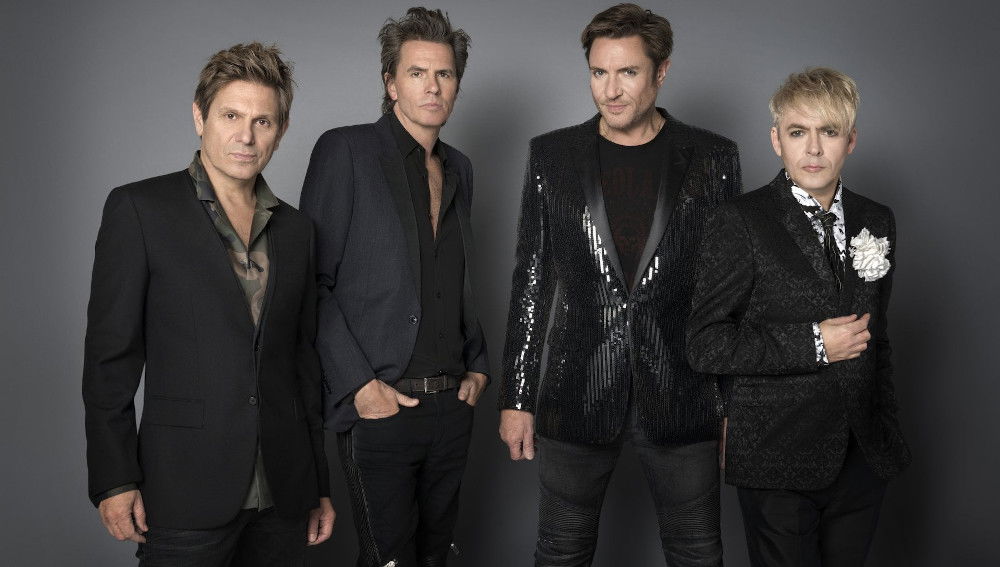Invisible, quaranta anni di Duran Duran
Il nuovo singolo della band inglese, culto anni Ottanta, che anticipa il nuovo album. Non è mai troppo tardi per metterli in una prospettiva diversa...
24 Maggio 2021
di Paolo Morati

Era Duran Duran il titolo del primo album omonimo dei… Duran Duran. Uscito nel 1981, segnò di fatto l’esordio discografico della band inglese fondata tre anni prima da John Taylor e Nick Rhodes, e che aveva visto via l’ingresso di Roger Taylor, Andy Taylor e come (quarta) voce solista di Simon Le Bon. Ecco che proprio in occasione dei 40 anni dell’esordio discografico i Duran Duran hanno appena presentato il singolo Invisible, che anticipa il nuovo album in uscita il prossimo autunno.
Canzone duraniana come si deve, sufficientemente acida e new wave per piacere anche a chi li ha sempre considerati una band per ragazzine memori del loro passato anni Ottanta. E che nella realtà, a parte alcune parentesi come Notorius, sono sempre stati ben lontani dal gusto mainstream sperimentando ben bene, con alcuni cambi di formazione, abbandoni, ritorni e di nuovo abbandoni. Oltre che con progetti paralleli come gli Arcadia o i Power Station.
All’epoca del loro grande boom italiano di fatto i Duran Duran non è che fossero molto ben voluti dalla critica allergica a ciò che piace. Stiamo parlando dei primi del decennio magico, quelli finiti con The Wild Boys in realtà singolo di lancio di un live (Arena, del 1984) e della rivalità con gli altrettanto iconici Spandau Ballet, che aveva trasformato entrambe le band in idoli da urla isteriche e lanci di pupazzetti, una situazione a cui Le Bon e compagni non si sottraevano di certo ma che rischiava (e di fatto è successo) di mettere in ombra le qualità di un repertorio e di una capacità musicale per nulla banale.
Noi stessi, ancora alle medie nel bel mezzo delle scoperte di quell’età, li ascoltavano un po’ di sfuggita senza approfondirne più di tanto la discografia. Insomma, si andava dietro al carro del capolavoro Save a prayer, del ritmo di Hungry like the wolf e Rio, mentre i brani di quel primo album del 1981 (compresa la splendida Planet Earth) in Italia non è che avessero sfondato più di tanto. Poi con Rio, appunto, e successivamente The Reflex (singolo simbolo di Seven and the Ragged Tiger) la vera e proprio esplosione, ad anticipare altre pietre miliari come I Don’t Want Your Love (in Big Thing del 1988)… e successiva implosione fino all’album di Ordinary world (noto come The wedding album) che nel 1993 ne segnò un sorprendente e insperato rilancio.
Tra alti e bassi di popolarità i Duran Duran, ben voluti anche negli Stati Uniti (cosa non sempre semplice per le band britanniche, nonostante la lingua) sono quindi arrivati, magari un po’ più invisibili ma comunque in gran forma, fino ad oggi. Altro che gruppo per ragazzine.
Duran Duran was the title of Duran Duran’s first self-titled album. Released in 1981, it marked the debut album of the English band founded three years earlier by John Taylor and Nick Rhodes, and which had seen the entry of Roger Taylor, Andy Taylor and Simon Le Bon as (fourth) lead vocalist. On the occasion of the 40th anniversary of their debut album, Duran Duran have just presented the single Invisible, which anticipates the new album to be released next autumn.
It’s a proper Duran Duran song, sufficiently acid and new wave to please even those who have always considered them a band for young girls remembering their past eighties. And that in reality, apart from a few brackets like Notorius, they have always been far from the mainstream taste, experimenting well, with some line-up changes, abandonments, returns and abandonments again. As well as with parallel projects like Arcadia or Power Station.
At the time of their great Italian boom, Duran Duran were not very well liked by critics who were allergic to what they liked. We’re talking about the first years of the magic decade, the ones that ended with The Wild Boys, which was actually the launching single of a live show (Arena, 1984) and the rivalry with the equally iconic Spandau Ballet, which had turned both bands into idols of hysterical screaming and puppet throwing, a situation that Le Bon and his companions certainly didn’t shy away from but that risked (and actually happened) to overshadow the qualities of a repertoire and a musical ability that was anything but banal.
We ourselves, still in junior high school in the midst of the discoveries of that age, listened to them in passing without delving too deeply into their discography. In short, we used to follow the bandwagon of the masterpiece Save a prayer, the rhythm of Hungry like the wolf and Rio, while the songs from that first album in 1981 (including the splendid Planet Earth) didn’t really break through in Italy. Then with Rio, and later The Reflex (the signature single of Seven and the Ragged Tiger) the real explosion, anticipating other milestones such as I Don’t Want Your Love (in 1988’s Big Thing)… and subsequent implosion up to the Ordinary world album (known as The wedding album) which in 1993 marked a surprising and unexpected revival.
Through ups and downs of popularity, Duran Duran, well liked also in the United States (which is not always easy for British bands, despite the language) have therefore arrived, maybe a little more invisible but still in great shape, until today. More than a band for little girls.





Commenti Recenti